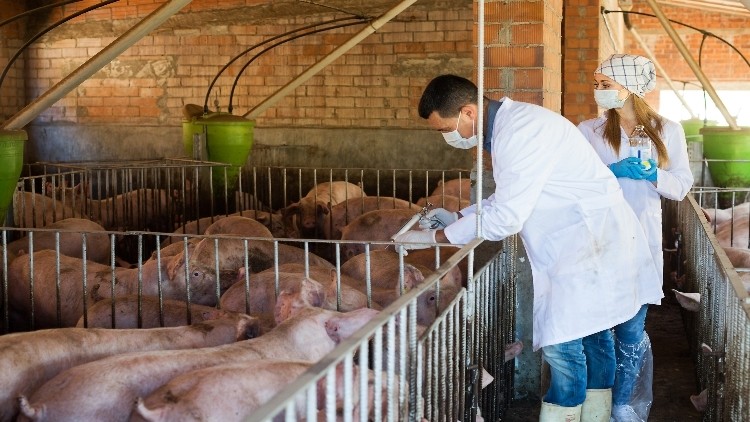Global Meat News: Antibiotic market value to reach $44bn in 2020

Two young serious veterinarians wearing protective clothing holding syringes and glass bottles in sty
by Aidan Fortune | June 25, 2018
The value of the animal health market is expected to reach $44.2bn (£39bn) by 2020 despite efforts to reduce antibiotic usage.
According to a report by Informa’s Agribusiness Intelligence, the value of the market is predicted to continue to rise over the next two years.
The report adds that producers are looking at ways to reduce antibiotic use through better management and new technologies as resistance remains a cause for concern. Overuse is still suspected as an issue in countries such as China, where demand for meat has increased significantly in recent years as GDP has increased.
Used in animal production as an effective way of ensuring high-quality, low-cost food of animal origin for human consumption, the report states the total market for animal health products was almost $30bn (£26.4bn) in 2014 and is expected to reach at least $44.2bn by 2020.
They are typically used for three purposes in animals: growth promotion, disease prevention and to cure an existing disease. Antibiotic growth promoters were banned in the EU in 2006 and it is likely there will be a worldwide ban in future, whereas continued improvements in animal husbandry management will lead to decreased antibiotic use for disease prevention.
The report states that it’s in developing nations such as Russia, Brazil, India and China that growth has been the starkest as GDP and disposable income for food has increased in recent years. China in particular has very substantial utilisation of antibiotics in animal production, with the report claiming that nearly half of the 210,000 tonnes of antibiotics produced in China are given to food animals.
‘No silver bullet’
It warns the widespread use of antibiotics causes two problems: firstly, the risk that antibiotic residues may be found in humans, and secondly the development of antibiotic resistance in pathogenic micro-organisms.
Alan Bullion, special reports director at Informa’s Agribusiness Intelligence, said: “The animal health market will grow driven by animal medicine, vaccines and antibiotic alternatives, with antibiotics set to play a smaller role. However, at present there is no ‘silver bullet’ to replace antibiotics in animal production. Several products such as antimicrobial peptides, phages and vaccines are promising, yet the most successful replacement for antibiotics will be high-quality nutrition and good management forming part of robust disease prevention strategies.”